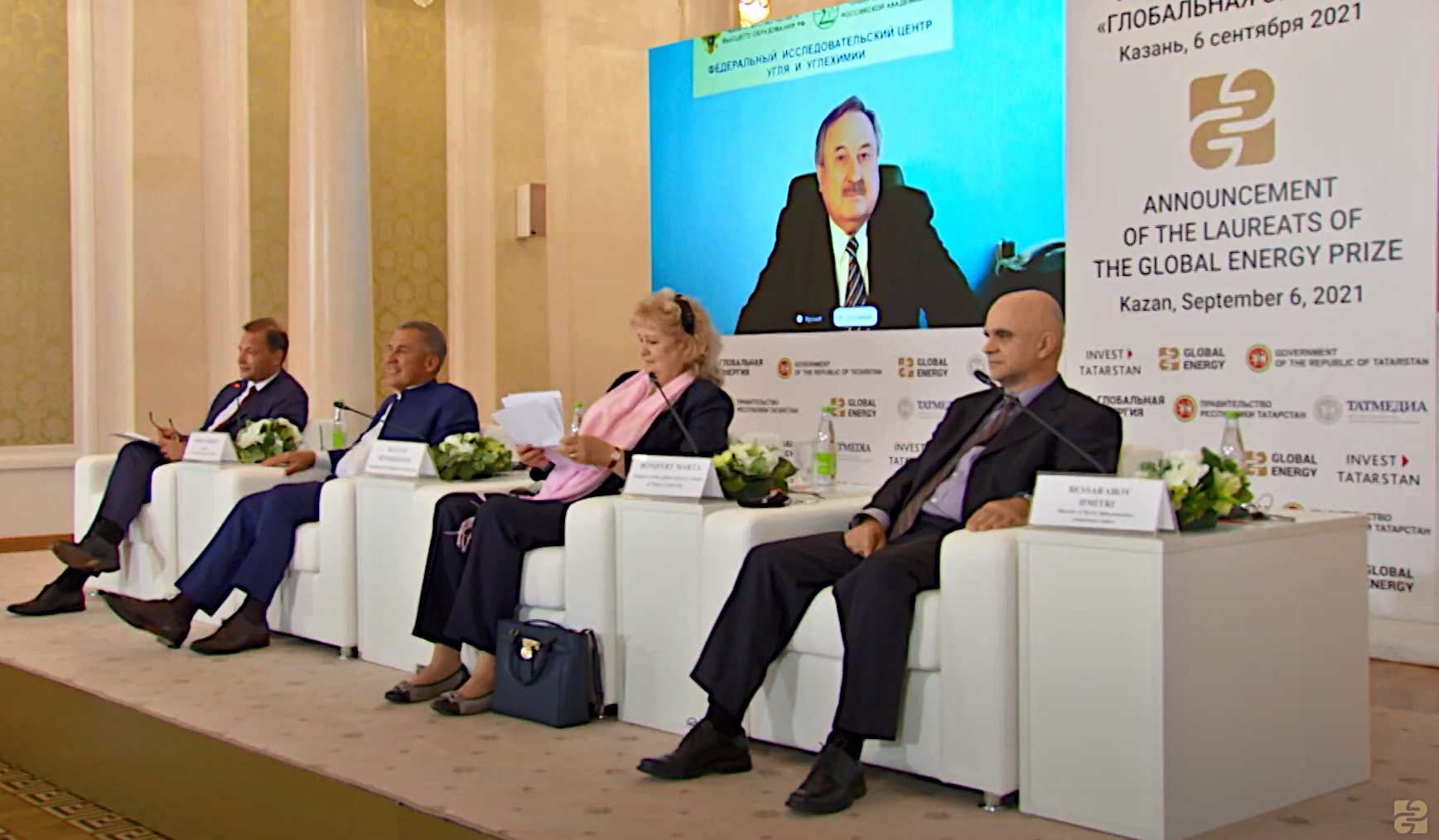
Boreskov Institute of Catalysis was founded in 1958 as a part of the Siberian Branch of the Russian Academy of Sciences. The founder and the first Director of the Institute till 1984 was academician Georgii Konstantinovich Boreskov.

One of the main activity areas of the Boreskov Institute of Catalysis is fundamental investigations in catalytic science to discover new principles of chemical reactions and to create innovative catalytic compositions and technologies.
Read more...

Boreskov Institute of Catalysis pays great attention to the training of young scientists. Each year more than 100 students and post-graduates are being trained at its research and educational facilities. The Institute collaborates with many educational organizations, including:
Read more...

For more than half a century, the Boreskov Institute of Catalysis is at a cutting edge of innovative R&D for chemical and petrochemical industries, energy power, environmental protection.
Read more...
10 September 2021
Academic advisor of Federal Research Center of Coal and Coal Chemistry (FRC CCC SB RAS), Chief researcher of Boreskov Institute of Catalysis, Academician Zinfer Ismagilov won the international Global Energy Prize. It is given for the outstanding research and scientific results that increase efficiency and ecological safety of the energy sources on Earth in the interests of humanity.
Zinfer Ismagilov received the prize in the Conventional Energy nomination for his fundamental contribution to chemistry of carbon materials and heterogeneous catalysis in the fight against climate change. In June 2021 his project in cooperation with Academician Valentin Parmon, “Catalytic methods of processing carbon dioxide of coal generation into useful products” was listed among the ten breakthrough ideas in the field of energetics according to the Global Energy Association.
As Zinfer Ismagilov notes, “The main developments that make the basis for our application for the Global Energy Prize were made within the last 50 years in our institutes and summarized in 31 PhD and 7 DrSci theses. The application also included materials of our international projects”.
The researchers of FRC CCC and FRC BIC headed by Zinfer Ismagilov developed the technology of low-temperature environmentally friendly fuel combustion in the fluidized bed of catalyst, the technology of purification of associated petroleum gases from hydrogen sulfide, mastered the technology of manufacturing the honeycomb block catalysts, developed various methods of hydrogen obtaining, made research in the field of synthesis of carbon nanomaterials, developed the technology of utilization of nuclear industry wastes, worked on the solution of environment problems of coal-mining and coal-processing regions, etc.
According to Zinfer Ismagilov, he values the winning of the Global Energy Prize as a monumental accomplishment for any scientist.
“It is known that Nobel Prize nominations do not include energetics, so our colleagues sometimes ironically call the Global Energy Prize the Energy Nobel, — says the researcher. — Its winning speaks about the worldwide recognition of our scientific achievements in the field of energetics. It is a great honor not only for me but also for our whole research team that works in both Boreskov Institute of Catalysis where many research results were obtained and in the Institute of Coal Chemistry and Chemical Materials Science in FRC CCC in Kemerovo in the last decade. It turned out that my name as a winner was announced on September 3rd at the plenary session of the East Economic Forum attended by the Presidents of Russia, Kazakhstan, Mongolia, Chairman of China, and Prime-Ministers of India and Thailand. Our President, Vladimir Putin, asked a question on energetics, and the moderator of the plenary session, the President of the Global Energy Association Sergey Brilev told that there are scientists in the country who study the obtaining of hydrogen from coal and processing of carbon dioxide by catalytic methods, and called my name. Then, on September 6th, the laureates of the 2021 Global Energy Prize were announced in Kazan in all three nominations”.

Along with Zinfer Ismagilov the Prize was awarded to Suleyman Allakhverdiev, the head of the Controlled Photobiosynthesis Laboratory in Timiryazev Institute of Plant Physiology (RAS, Moscow), and Yi Cui, Director of the Precourt Institute for Energy at Stanford University (USA).
“By choosing these three laureates, I am sure the Global Energy Prize sent out a strong message that scientific and technological innovations in the field of both conventional and non-conventional energy can lead us to a clean energy future,” — said Rae Kwon Chung, Nobel Peace Prize Laureate and head of the Global Energy Prize International Award Committee.
This is already the second Global Energy Prize that was awarded to the scientists of Boreskov Institute of Catalysis: in 2016 the Prize was won by the Academic Advisor of BIC, Academician Valentin Parmon for a breakthrough development of new catalysts in the area of petroleum refining and the renewable sources of energy as a principal contribution into the energy of the future.
Info: The Association for the development of international research and projects in the energy sector — “Global Energy” — is a non-governmental organisation, created in 2002 for the advancement and support of innovation within the realm of energy, and for the development of cooperation in energy. The members of the Association are PAO “Gazprom”, PAO “Surgutneftegaz”, “Rosseti FSK EES”. The Association helps to form the energetics of the future by supporting the advanced sci-tech developments and stimulating the international energy collaboration in the interests of the humanity.